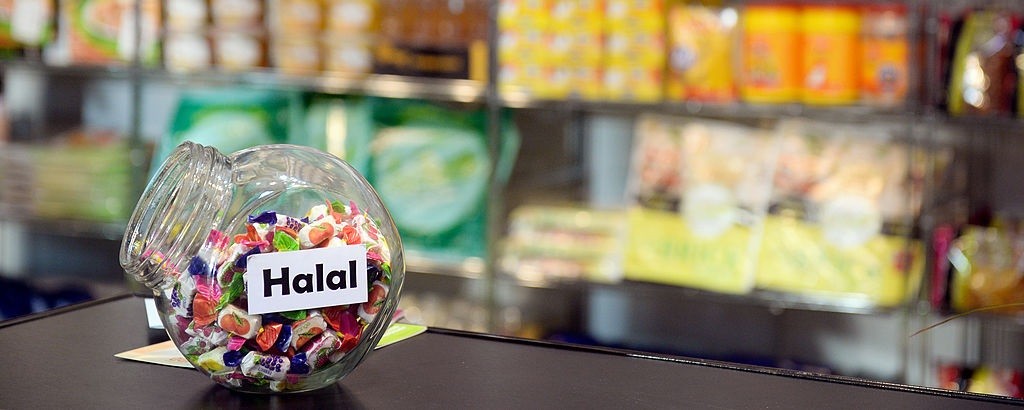
Booming Halal Market: Opportunities and Challenges for Businesses
Latest
 |
| The Halal market encompasses a wide range of products, from food and beverages to cosmetics, pharmaceuticals, and finance... (Source: Getty) |
In recent years, the global Halal market has been experiencing remarkable growth. This is due to the increasing demand from Muslim consumers as well as the growing acceptance of Halal products among non-Muslims. The booming Halal consumer market presents numerous opportunities and challenges for businesses looking to tap into this vast and promising market.
Halal, in Arabic, means "permissible" or "legal." The Halal market includes a variety of products, from food and beverages to cosmetics, pharmaceuticals, and finance. The Halal industry spans many different sectors and is estimated to be worth trillions of dollars globally. The exponential growth of the Muslim population, along with increased awareness and adherence to Halal practices, has driven the expansion of this market.
In an article published in 2021, website aa.com.tr cited information from the World Halal Union, stating that international organizations estimated the global Halal economy to be worth over $7 trillion in 2022 and projected it to grow to around $10 trillion by 2028. Spending on and the use of Halal products are on the rise, expanding even among non-Muslims.
Seizing Opportunities
Diverse Consumers: One of the most significant opportunities the Halal market offers is access to a diverse and rapidly growing consumer base. According to the Global Islamic Economy Index (GIE) report, the Muslim population is expected to grow from 1.8 billion in 2017 to 3 billion by 2060. This vast market has a substantial demand for Halal-certified products across various regions and demographics.
Market Segmentation: Businesses can leverage the Halal market by catering to niche segments within the Muslim community. This may involve offering specialized Halal products, such as organic Halal foods, environmentally friendly cosmetics, or Sharia-compliant financial services, to meet the specific needs and preferences of consumers.
Global Scale: The Halal market is not confined to countries with a Muslim majority; it extends to nations with Muslim minorities and non-Muslim consumers who seek Halal-certified products for ethical, health, or quality reasons. Therefore, businesses have the opportunity to expand globally by tapping into these diverse markets.
Innovation and Creativity: As the Halal market continues to grow, there remains room for innovation and creativity in marketing strategies and product development. Businesses can differentiate their brands by offering unique and innovative Halal products that cater to emerging trends and consumer preferences.
 |
| The growing popularity of the Halal market has led to increasing competition among businesses. (Source: Halal Food Council USA) |
Identifying Challenges
Certification and Compliance: Obtaining Halal certification can be a complex and costly process, involving strict standards and regulations set by certifying bodies. Businesses may face challenges in ensuring that their products comply with Halal requirements, especially if they operate in multiple markets with varying certification standards.
Supply Chain Management: Maintaining a Halal supply chain, from sourcing raw materials to production and distribution, can pose logistical challenges for businesses. Ensuring the integrity of ingredients and production processes requires meticulous attention to detail and robust quality control measures.
Market Competition: The increasing popularity of the Halal market has led to heightened competition among businesses vying for consumer attention. Companies must differentiate their brands and products and capture market share effectively to stand out in a crowded market.
Cultural and local Sensitivity: Understanding the cultural nuances and preferences of diverse Muslim communities is essential for successful market penetration. Businesses need to adapt their products, marketing messages, and branding strategies to align with local customs and values, especially in international markets.
The Halal market boom presents lucrative opportunities for businesses willing to navigate the complexities and challenges of this rapidly growing industry. By tapping into the increasing demand for Halal products and services, businesses can successfully meet the needs and preferences of Muslim consumers worldwide. However, this work requires careful planning, innovation, and a deep understanding of cultural and regulatory factors. With the right approach and commitment to quality and compliance, businesses can capitalize on the Halal market's booming growth and thrive.
| The development of the Halal industry in Vietnam has shown relatively positive changes in recent times. However, Vietnam's participation in the Halal market is still in its early stages, and the concept and market for Halal products are still quite new in our country. As of September 2023, more than 1,000 small and medium-sized enterprises in Vietnam, along with some large corporations (Vinamilk, Nestle Vietnam, Hapro, Trung Nguyen, etc.), export Halal-certified products. Vietnam's Halal products account for a small proportion of the overall export structure to Muslim-majority or Muslim-populated markets and are primarily in raw and semi-processed forms, with little added value. On February 14, 2023, the Prime Minister issued the Decision approving the project "Enhancing International Cooperation for the Development of the Vietnamese Halal Industry by 2030." This is an important achievement after two years of effort and close coordination between the Ministry of Foreign Affairs and other ministries, sectors, localities, associations, and businesses in drafting the project (with three rounds of consultation and numerous conferences and seminars). This can also be considered a very important turning point in the development of the Vietnamese Halal industry, marking the first time that comprehensive national-level directions have been set out to mobilize international resources for the systematic, professional, and comprehensive development of the Vietnamese Halal industry. |





















